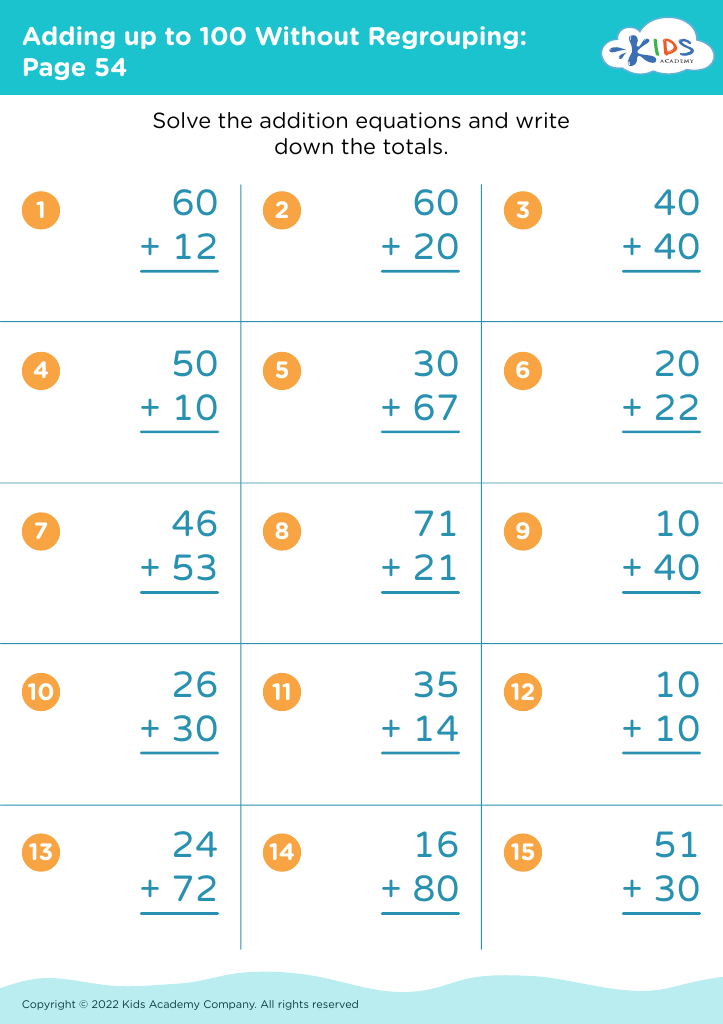Fraction conversion Addition Worksheets for 7-Year-Olds
3 filtered results
-
From - To
Welcome to our "Fraction Conversion Addition Worksheets" designed specifically for 7-year-olds! These engaging worksheets help young learners master the art of adding fractions through fun, interactive exercises. Our carefully crafted materials focus on enhancing their understanding of fraction concepts and conversions. Each worksheet provides clear instructions and visually appealing illustrations to make learning enjoyable. By practicing addition of various fractions, children will build essential math skills and develop confidence in their abilities. Ideal for classroom use or at-home reinforcement, our worksheets cater to different learning styles and ensure captivating experiences for every young mathematician. Let’s make learning fractions fun!
Understanding fraction conversion and addition is crucial for 7-year-olds as it lays the foundation for their mathematical growth. At this age, children are developing critical thinking and problem-solving skills, which are essential for their academic journey. Mastering fraction conversion enhances their ability to work with different representations of numbers, fostering number sense and promoting flexibility in thinking.
Fraction addition is particularly relevant in everyday situations, such as sharing food or dividing resources. By engaging with these concepts, children learn to make sense of the world around them and develop practical skills for real-life applications. Additionally, succeeding in fraction tasks builds confidence in young learners and encourages a positive attitude toward math.
For parents and teachers, nurturing this understanding is a way to prepare children for future mathematical concepts. Fractions are foundational for more advanced topics, such as ratios, proportions, and algebra, which they'll encounter in later grades. By supporting their comprehension of fraction conversion and addition now, adults help set students up for lifelong success in mathematics and beyond. In short, fostering a strong foundation in these skills is an investment in children's confidence, critical thinking, and academic achievement.




















